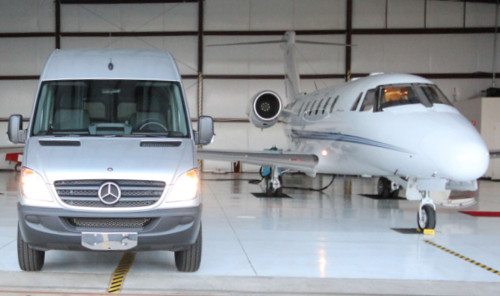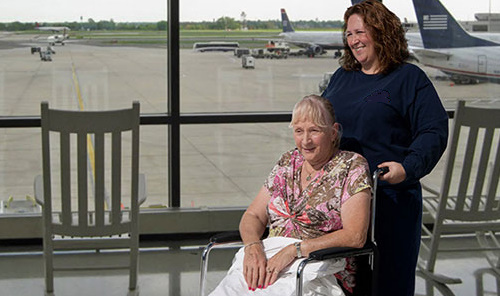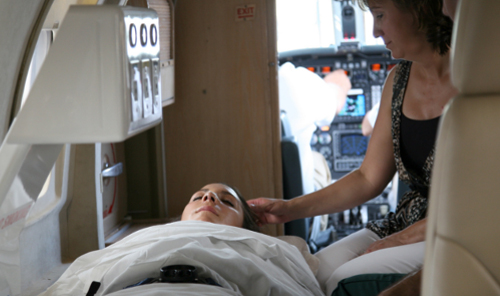Air Ambulance General FAQs
Americans who become ill abroad
Medical Information for Americans Abroad
For detailed information about steps you can take to ensure a safe trip, see How to Have a Safe Trip. Meanwhile, here are some quick tips to make your travel easier and safer:
- Register so the State Department can better assist you in an emergency: Register your travel plans with the State Department through a free online service at https://travelregistration.state.gov. This will help us contact you if there is a family emergency in the U.S., or if there is a crisis where you are traveling. In accordance with the Privacy Act, information on your welfare and whereabouts will not be released to others without your express authorization.
- Sign passport, and fill in the emergency information: Make sure you have a signed, valid passport, and a visa, if required, and fill in the emergency information page of your passport.
- Leave copies of itinerary and passport data page: Leave copies of your itinerary, passport data page and visas with family or friends, so you can be contacted in case of an emergency.
- Check your overseas medical insurance coverage: Ask your medical insurance company if your policy applies overseas, and if it covers emergency expenses such as medical evacuation. If it does not, consider supplemental insurance.
- Familiarize yourself with local conditions and laws: While in a foreign country, you are subject to its laws. The State Department web site at http://travel.state.gov/travel/cis_pa_tw/cis/cis_1765.html has useful safety and other information about the countries you will visit.
- Take precautions to avoid being a target of crime: To avoid being a target of crime, do not wear conspicuous clothing or jewelry and do not carry excessive amounts of money. Also, do not leave unattended luggage in public areas and do not accept packages from strangers.
- Contact us in an emergency: Consular personnel at U.S. Embassies and Consulates abroad and in the U.S. are available 24 hours a day, 7 days a week, to provide emergency assistance to U.S. citizens. Contact information for U.S. Embassies and Consulates appears on the Bureau of Consular Affairs website at http://travel.state.gov. Also note that the Office of Overseas Citizen Services in the State Department’s Bureau of Consular Affairs may be reached for assistance with emergencies at 1-888-407-4747, if calling from the U.S. or Canada, or 202-501-4444, if calling from overseas.
Emergency Air Medical Contact; AIR AMBULANCE NETWORK at 1- 800-327-1966 or 727-934-3999
If an American citizen becomes seriously ill or injured abroad, a U. S. consular officer can assist in locating appropriate medical services and informing family or friends. If necessary, a consular officer can also assist in the transfer of funds from the United States. However, payment of hospital and other expenses is the responsibility of the traveler.
Before going abroad, learn what medical services your health insurance will cover overseas. If your health insurance policy provides coverage outside the United States,
REMEMBER to carry both your insurance policy identity card as proof of such insurance and a claim form. Although many health insurance companies will pay “customary and reasonable” hospital costs abroad, very few will pay for your medical evacuation back to the United States. Medical evacuation can easily cost $10,000 and up, depending on your location and medical condition.
THE SOCIAL SECURITY MEDICARE PROGRAM DOES NOT PROVIDE COVERAGE FOR HOSPITAL OR MEDICAL COSTS OUTSIDE THE U.S.A.
The aircraft and crew must meet requirements for the aircraft to fly in RVSM aerospaceThe aircraft and crew must meet requirements for the aircraft to fly in RVSM aerospace
Are you licensed?
Yes, we are licensed for Advanced Life Support and Inter-facility transfers. We only work with licensed sub contractors and operators so you can rest assured knowing that everyone is licensed, including all ground transport and air transportation.
How do I pay?
Air Ambulance Network accepts Bank Wires, Certified Checks and Money Orders. In addition we accept all major credit cards. We can also do a “Check by Fax” and a personal check with a credit card authorization. We accept most all insurances with verified benefits.
What are your hours of operations?
Air Ambulance Network is staffed 24 hours a day everyday for transfer requests, The business offices are open 9am-5pm EST.
What Oxygen Concentrators are approved for use in aircraft?
FAA OKs Four More Portable Oxygen Concentrators
WASHINGTON — The Federal Aviation Administration (FAA) announced today that passengers needing medical oxygen now have the option of using four additional portable oxygen concentrators while traveling, bringing the total number of approved units to 11.
The newly authorized devices are DeVilbiss Healthcare’s iGo, International Biophysics Corporation’s LifeChoice, Inogen’s Inogen One G2 and Oxlife’s Independence Oxygen Concentrator.
“This is our latest step toward making air travel more accessible for people who need medical oxygen,” said FAA Administrator Randy Babbitt. “We want these passengers to have as many options as possible while ensuring all of our safety guidelines are being met.”
Portable oxygen concentrators are small, portable devices that separate oxygen from nitrogen and other gases in the air and provide oxygen to users at greater than 90 percent concentration. They do not use compressed or liquid oxygen, which the government classifies as hazardous material.
The Department of Transportation requires that U.S. carriers allow passengers to use portable oxygen concentrators approved by the FAA during all phases of a flight – including taxiing, takeoff and landing – if the unit displays a manufacturer’s label that indicates it meets FAA requirements for portable medical electronic devices, is properly stowed, and meets certain other applicable safety-related conditions
For example, passengers must ensure the unit is in good working order and must be able to respond to the unit’s warning alarms. They must protect extra batteries in carry-on baggage from short circuits and physical damage. Carriers also must let passengers operate these FAA-approved concentrators while moving about the cabin whenever the captain turns off the “Fasten Seat Belt” sign.
Carriers can legally refuse to allow inflight use of an FAA-approved portable oxygen concentrator that does not have a manufacturer’s label indicating that the device complies with FAA requirements. However, the Department encourages airlines to voluntarily allow the inflight use of such devices. Inflight use of an FAA-approved portable oxygen concentrator, whether labeled or not, poses no safety danger so long as carriage of the device is in accordance with instructions provided by the FAA.
The FAA previously approved these portable oxygen concentrators for use:
- Delphi Medical Systems RS-00400
- Invacare XPO2
- AirSep Lifestyle
- AirSep Freestyle
- Inogen One
- SeQual Eclipse
- Respironics EverGo
- Invacare XPO2
- AirSep lifestyle
- AirSep Freestyle
- Inogen One’
- Sequal Eclipse
- Respironics EverGo
What is included in the price?
We include everything in our price that is a Bedside to Bedside full service air medical service. We take care of everything, unless otherwise requested.
What’s needed to accept Insurance?
About 20 to 40 percent of patients have some form of insurance coverage for air ambulance transports. Usually, medical necessity must be shown. In instances of medical necessity, Medicaid will also sometimes cover air ambulance transports. Our Flight Coordinators will more than happily work with you to obtain prior authorization from your insurance carrier. If you travel, we suggest you look at the AIR AMBULANCE NETWORK Assist program sponsored by Air Med on our “Home Page”. This is a very inexpensive one-time-payment insurance policy that covers either an individual or family for up to one year and provides air ambulance transportation if needed at no out of pocket expense.
Insurance Inquiries
For our review we request that we have the following documents:
Face Sheet from the hospital and the current H&P (Health and Physical) and copies of the Front and Back of the insurance cards and any documents you have received from the insurance company with pre-authorizations.











